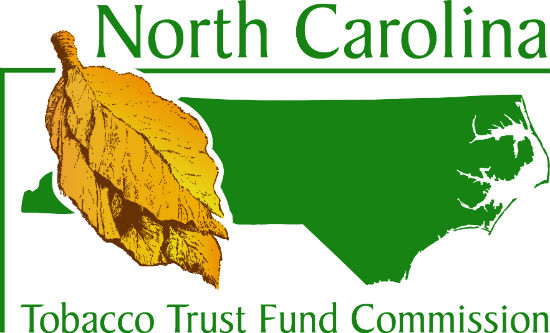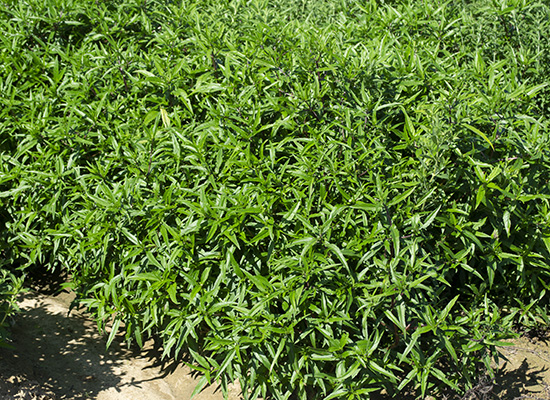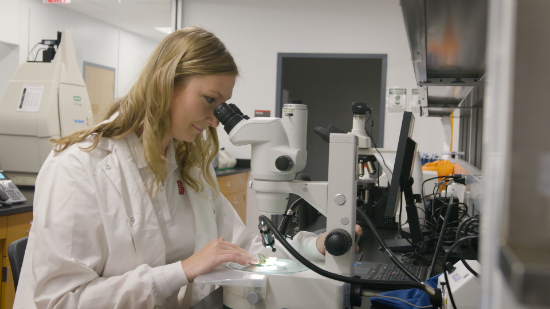
NCBiotech Lands Stevia Research Grant from Tobacco Trust Fund

Farmers in the state are moving closer to a sweet new cash crop option, thanks to a research grant from the North Carolina Tobacco Trust Fund Commission to the North Carolina Biotechnology Center.
The $159,425 grant awarded last week from the trust fund to NCBiotech’s Crop Commercialization Program opens the door for a two-year study into organic stevia pest control.
Stevia is a zero-calorie sweetener derived from the leaves of the plant species Stevia rebaudiana. The plant is native to Brazil and Paraguay, and has been used for hundreds of years by South Americans. Stevia production began in North Carolina in 2011 with a few test acres in Bertie County. Acreage has increased each year since, and expanded to at least 10 counties.
Though deer, insects and major tobacco diseases have not yet proven to be a problem for the crop in North Carolina, the NCBiotech program is designed to stay ahead of challenges that are sure to arise, especially in the higher-profit organic stevia market.

As stevia becomes increasingly used in the United States and elsewhere around the world as a substitute for sugar and artificial sweeteners, the market is especially interested in the organically raised product. But that means farmers will need effective organic weed-control technologies to avoid costly hand weeding of the crop. And organic measures need to be available to limit damage from insects and disease. Two stem rot diseases have been identified as possible threats to stevia production.
Sarah Frank, crop commercialization project administrator with the Biotech Center, said the grant enables the Center to coordinate and manage research efforts of two North Carolina State University scientists -- Lindsey Thiessen, Ph.D., assistant professor and extension specialist in tobacco and field crops and Katie Jennings, Ph.D., associate professor of horticultural science.
They’ll assess weed and disease damage to stevia and evaluate biocontrol products in greenhouse and field trials.
“Stevia is a high-value crop of interest to North Carolina growers, especially current and former tobacco growers, because the plants involve similar production practices,” said Paul Ulanch, Ph.D., MBA, executive director of the NCBiotech Crop Commercialization Program.
“The potential for North Carolina-grown stevia has been attributed to stevia processors, such as Laurinburg-based HSGrowers, which recently changed its name from US Stevia. North Carolina’s climate is ideal for the crop. But the interest and growth opportunity for U.S. production lies in organically grown stevia as processors look to satisfy their food and beverage customers’ demands. So our project is evaluating weed and disease biocontrol products -- a remaining hurdle to ensuring successful stevia production in North Carolina.”

-- Charles Steen, SCN Coalition
The research will target the Eastern Piedmont and Coastal Plain regions of the state, because their climate is best suited for stevia production, said Frank. The goal is to develop and submit data to obtain biocontrol registration in stevia.
Ulanch and Frank said they expect the stevia project to also create indirect benefits such as the recruitment of stevia processors to source North Carolina-grown organic stevia, and potentially locate more processing facilities in the state.
By showing that North Carolina can produce large quantities of top-quality organic stevia, regularly fulfilling processor demand, processors will source more stevia from the state. That can create economic development opportunities for rural communities, particularly for previous tobacco communities, as growers convert acreage to stevia production. Translation: job creation and increased revenues to those rural communities.
NCBiotech grant is one of 22 awarded
The NCBiotech grant is one of 22 awarded recently by the tobacco trust fund commission, totaling more than $3.4 million, for agricultural and economic initiatives across the state. The grants place a high priority on projects that address ways to train people for new careers, stimulate the agricultural economy and help farmers with innovative ideas.
"Our Commission is dedicated to funding projects that will benefit farmers and their communities across the state,” said Chairman Bill Teague. “In 2019 we were able to fund a diverse array of projects that will benefit a wide section of North Carolina agriculture.”

The $3.4 million supports projects that assist farmers with facility enhancements, research and educational opportunities. These projects assist with innovative on-farm projects, increase leadership skills and offer operational strategies that will help farmers increase farm income.
Examples of other projects receiving grants in this round of funding include one to the North Carolina Agricultural Foundation to study insect and mite management in hemp. Another project partners with the North Carolina Agromedicine Institute to educate producers about managing their response to farm stress.
In addition to the grants awarded, the tobacco trust fund commission renewed its partnerships with the AgPrime and AgVentures programs to provide small grants directly to on-farm projects that support increasing farm profitability.
The General Assembly created the tobacco trust fund commission in 2000 to lessen the financial impact to farmers and tobacco-related businesses caused by the sharp decline of tobacco in the agricultural economy. The commission’s original funding was established through tobacco industry annual payments as a result of the Master Settlement Agreement. Its current funding comes from a set appropriation of funds.
Since 2002, the foundation has awarded more than 360 grants to public and nonprofit agencies that meet the goals of strengthening the rural and tobacco-dependent economies of North Carolina.
